Starting an online business may be a difficult undertaking, especially when it comes to selecting the best ecommerce builder. With so many alternatives available, deciding which one is best suited for your company needs can be difficult. But don’t worry, since this post will walk you through the five essential elements to look for in an ecommerce builder.
By the conclusion of this post, you’ll have an understanding of the features that are required for a successful online shop, as well as how to compare them in various ecommerce builders.
Read More: How to Choose Right Ecommerce Solution
Importance of Ecommerce Builder
Let’s say you want to start an online store selling handmade jewelry. You choose an ecommerce builder and sign up for an account. The builder provides you with a selection of website templates to choose from, and you pick one that matches the aesthetic of your jewelry.
Next, you start customizing the template by adding your logo, product images, and descriptions. You also set up payment processing by connecting your store to a payment gateway, such as PayPal or Stripe. This allows you to securely process credit card payments from your customers.
You then create product categories and add your jewelry items to the store. The ecommerce builder includes inventory management features, which allow you to keep track of your stock levels and receive alerts when products are running low. You can also set up shipping rates based on weight or destination, and the builder will automatically calculate shipping costs for your customers at checkout.
As you start promoting your store, you want to make sure that it’s optimized for search engines. The ecommerce builder includes SEO tools, such as the ability to add meta tags and descriptions, which help your store rank higher in search results.
Finally, as orders come in, you can use the ecommerce builder to manage and fulfill them. You receive notifications when new orders are placed, and you can view and manage them from a dashboard. The builder also generates packing slips and shipping labels, making it easy to process and ship orders.
All of these features work seamlessly together, allowing you to run your ecommerce business from a single platform. With an ecommerce builder, you can focus on creating and selling your products, rather than worrying about the technical details of running a website.
User-Friendly Interface

A user-friendly interface is a crucial feature of any ecommerce builder. It refers to the ease with which users can navigate and use the platform to create and manage their online store. A user-friendly interface should be intuitive and easy to understand, even for those without technical skills or experience.
A good ecommerce builder should have a clean and organized dashboard with clearly labeled sections and options. This allows users to easily find the features they need to create and manage their store. The interface should also be visually appealing and easy on the eyes, with a design that reflects the branding and aesthetic of the user’s business.
Additionally, the ecommerce builder should provide ample documentation and support resources to help users navigate the platform. This may include video tutorials, help articles, and customer support channels such as email or live chat.
Overall, a user-friendly interface is essential for ensuring that users can efficiently and effectively create and manage their online store. It helps to reduce frustration and confusion, allowing users to focus on growing their business instead.
Explore More: Design an Online Store with User Friendly
Responsive Designs for Ecommerce Builder
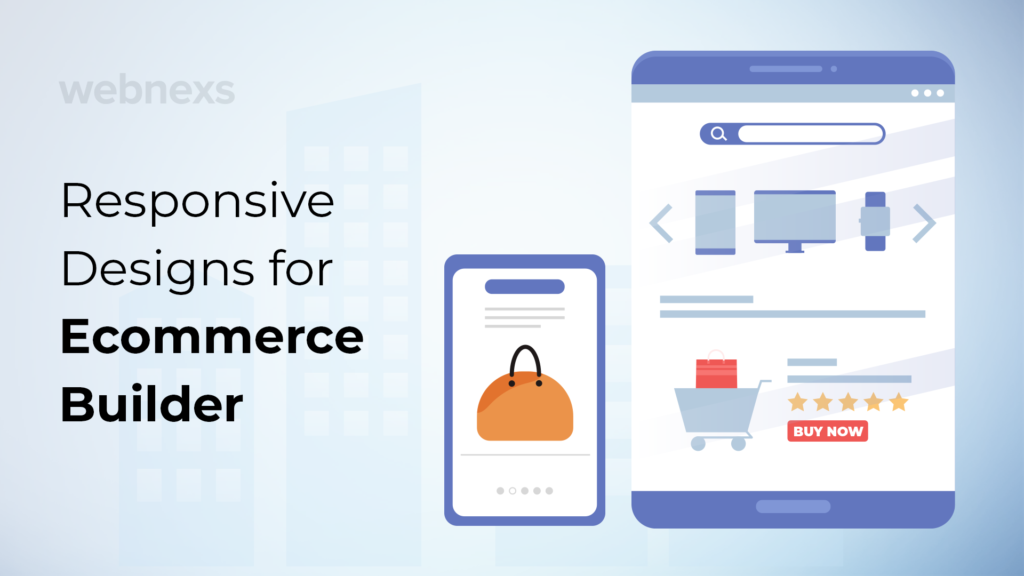
Responsive design is another important feature to look for in an ecommerce builder. It refers to the ability of a website to adapt its layout and content to different screen sizes, such as those on mobile devices or tablets. With more and more consumers shopping on their mobile devices, it’s essential that ecommerce stores have a responsive design to provide a seamless experience across all devices.
A good ecommerce builder should include responsive design templates, which automatically adjust the layout of the store based on the size of the user’s screen. This ensures that the store is easy to navigate and visually appealing, regardless of the device being used.
In addition, the builder should allow users to preview their store on different devices, so they can see exactly how it will look on a desktop computer, tablet, or smartphone. This helps users to identify and fix any layout or design issues that may arise due to the responsive design.
Overall, responsive design is an essential feature for any ecommerce store. It ensures that the store is accessible and easy to use for all customers, regardless of the device they are using. By choosing an ecommerce builder with responsive design capabilities, users can create a store that looks great and performs well on any device.
Explore More: Do’s and Don’ts in Ecommerce Web Design
Payment Gateway Integration
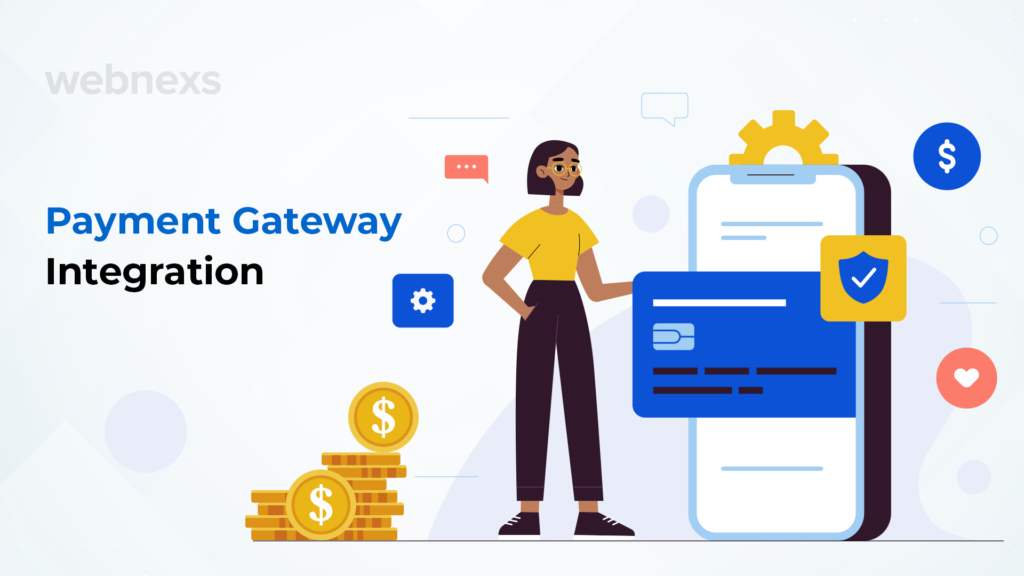
Payment gateway integration is a key feature that should be included in any ecommerce builder. It refers to the ability to securely process payments from customers through the online store. A payment gateway is a third-party service that facilitates transactions between the buyer and seller by encrypting sensitive information and verifying payment details.
A good ecommerce builder should offer integration with a variety of payment gateways, such as PayPal, Stripe, or Authorize.net. This allows users to choose the payment gateway that works best for their business and provides a convenient and secure checkout process for customers.
The ecommerce builder should also offer features to help users manage payments and refunds. This may include the ability to view transaction histories, process refunds or cancellations, and set up automatic recurring payments.
Additionally, the builder should include security features to protect both the user and the customer’s sensitive payment information. This may include SSL encryption, PCI compliance, and fraud prevention tools.
Overall, payment gateway integration is a critical feature for any ecommerce store. It allows users to securely process payments and provide a convenient checkout experience for customers, which can ultimately help to increase sales and revenue.
Read More: Tips for Developing an Ecommerce Website That Will Skyrocket Your Sales
Inventory Management for Ecommerce Builder
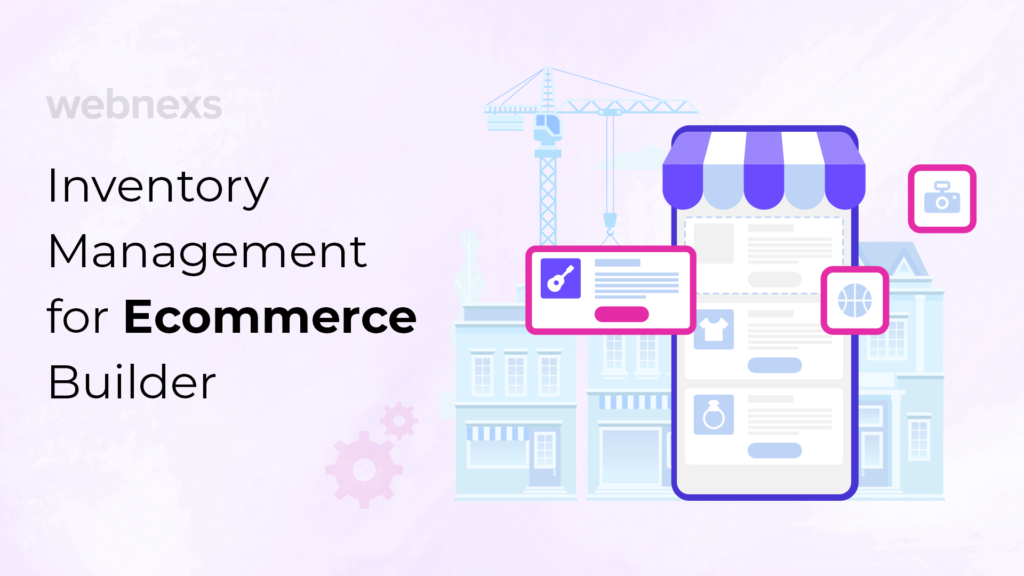
Inventory management is an important feature to look for in an ecommerce builder. It refers to the ability to track and manage the products and stock levels in an online store. Proper inventory management helps ensure that products are always available for sale, and it can also help prevent overselling or stock shortages.
A good ecommerce builder should include inventory management tools that allow users to easily track their product inventory. This may include features such as the ability to add new products, edit product descriptions and pricing, and track stock levels.
The builder should also offer features to help users manage their inventory, such as the ability to set up low stock alerts or automatically restock products when inventory levels drop below a certain threshold. Additionally, the builder should offer features to help users manage returns and refunds related to their inventory.
Overall, inventory management is an important feature for any ecommerce store. It helps ensure that products are always available for sale and can help prevent stock shortages or overselling. By choosing an ecommerce builder with robust inventory management capabilities, users can efficiently manage their inventory and keep their store running smoothly.
Marketing and SEO Tools
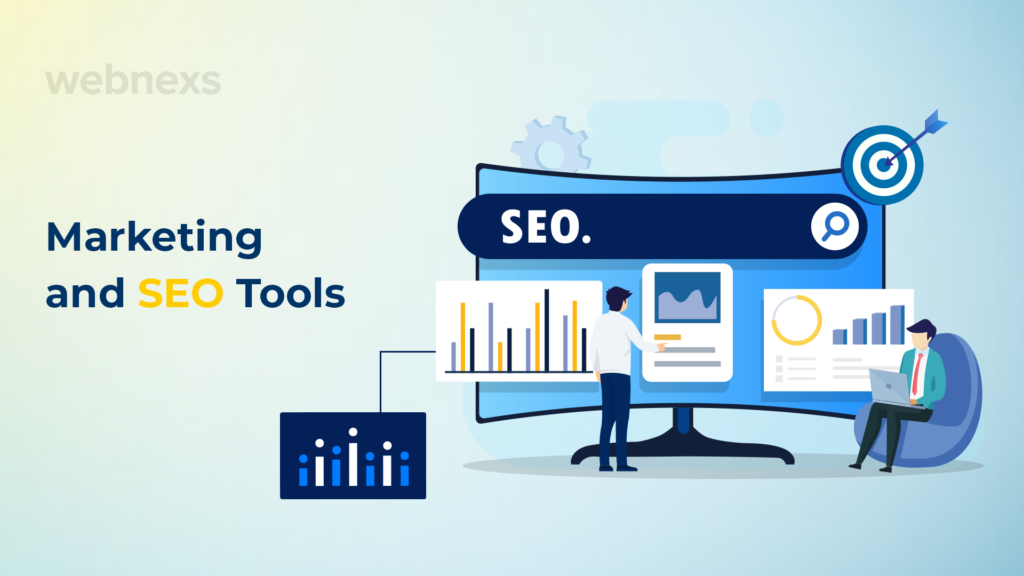
Marketing and SEO (search engine optimization) tools are essential features to look for in an ecommerce builder. These tools can help users promote their online store and drive traffic to their site, which can ultimately help increase sales and revenue.
A good ecommerce builder should include marketing tools such as email marketing campaigns, social media integration, and the ability to create promotions and discounts. These tools can help users reach their target audience and encourage customers to make purchases.
The builder should also include SEO tools to help improve the store’s search engine ranking. This may include features such as the ability to edit meta descriptions and tags, generate sitemaps, and optimize page load speeds.Optimizing their online store for search engines can help users improve their visibility and draw in more potential customers..
Additionally, the builder should offer analytics and reporting tools to help users track their marketing and SEO efforts. This may include features such as tracking website traffic, conversion rates, and customer behavior. This information can help users make data-driven decisions to improve their store’s performance and increase sales.
Overall, marketing and SEO tools are crucial features for any ecommerce store. They can help users promote their store and attract more potential customers, ultimately leading to increased sales and revenue. By choosing an ecommerce builder with robust marketing and SEO capabilities, users can efficiently manage their promotional efforts and drive growth for their business.
Conclusion
As a result, an ecommerce builder is a must-have tool for anybody wishing to start an online business. It is critical to assess features like user-friendly interfaces, responsive design, payment gateway integration, inventory management, and marketing and SEO capabilities when selecting an ecommerce builder. These features can assist customers in creating a professional and effective online store, reaching their target audience, and eventually increasing sales and revenue. Users may streamline their ecommerce operations and develop their business with ease by selecting the correct ecommerce builder with the proper features.
Frequently Asked Questions(FAQs)
What is an ecommerce builder?
An ecommerce builder is a software platform that enables users to create and manage an online store without any coding or technical skills. It offers features such as website design templates, shopping cart functionality, payment processing, and inventory management.
Which ecommerce builder is the best for my business?
The best ecommerce builder for your business depends on your specific needs and budget. Some popular options include Wcart, Webnexs, Shopify, BigCommerce and Squarespace.
Can I use my own domain name with an ecommerce builder?
Yes, most ecommerce builders allow you to use your own domain name for your online store. You can either purchase a new domain name through the ecommerce builder or transfer an existing domain name you already own.
How do I accept payments on my online store?
Most ecommerce builders offer built-in payment processing options such as PayPal, Stripe, and credit card payments. You can also use third-party payment processors such as Amazon Pay or Apple Pay. To set up payments on your online store, you’ll need to create an account with a payment processor and connect it to your ecommerce builder.
What is inventory management, and why is it important?
Inventory management is the process of overseeing and controlling the levels of stock or goods that a business has on hand. It involves tracking the movement of goods, including when they are received into the business, how they are stored, and when they are sold or shipped out to customers.
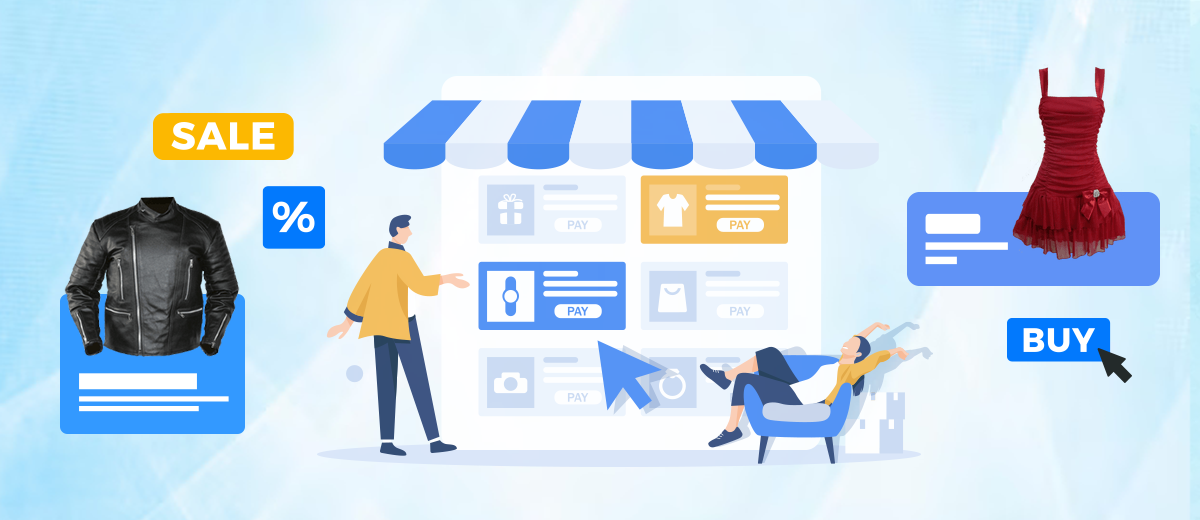



Leave a Reply